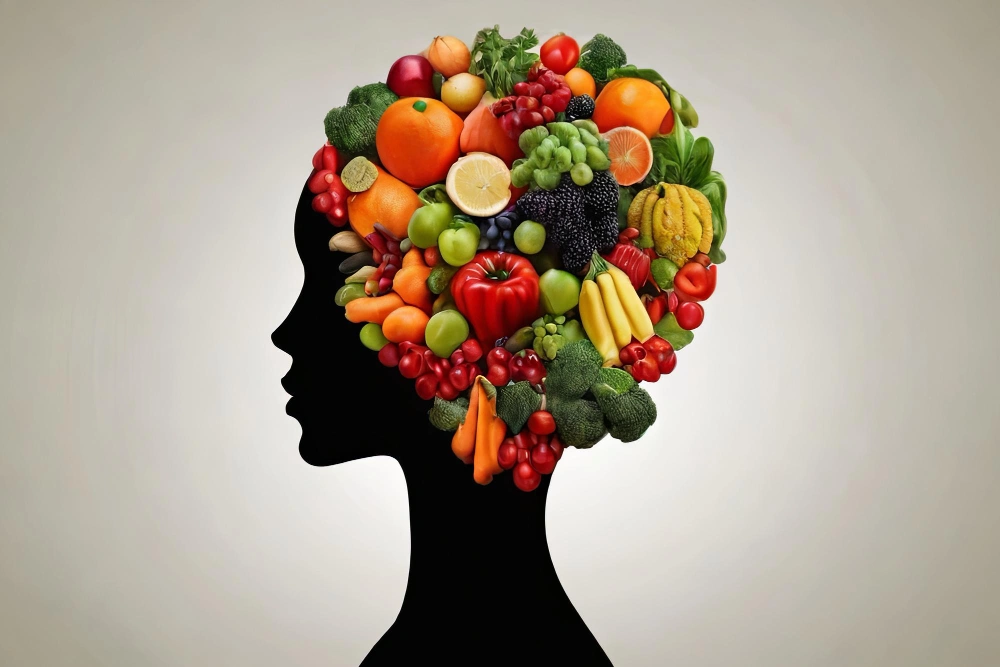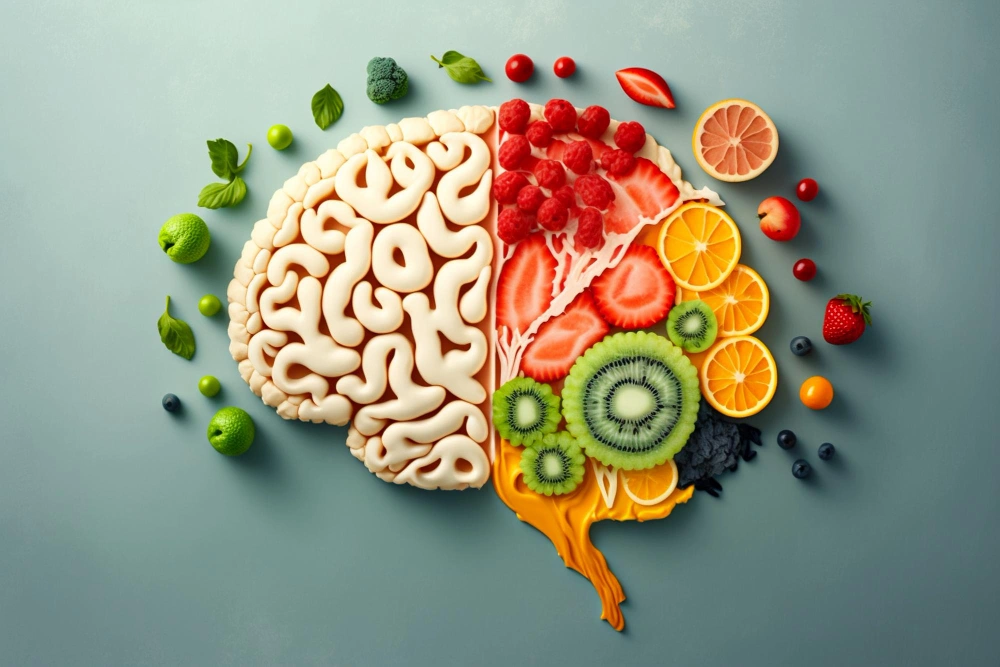Mental Health and Nutrition: How Your Diet Affects Your Mind

At GloFusion, we understand that mental health and nutrition are closely linked. What you eat can have a profound impact on how you feel. Let’s dive into how your diet affects your mind and discover some tips to boost your mental health through nutrition.
Page Contents
1. The Brain-Food Connection
Your brain needs the right nutrients to function at its best. Just like a car needs the right fuel, your brain needs a balanced diet to stay healthy.
- Healthy Fats: Omega-3 fatty acids found in fish, flaxseeds, and walnuts support brain health.
- Antioxidants: Berries, nuts, and dark chocolate are rich in antioxidants that protect your brain from damage.
- Vitamins and Minerals: Leafy greens, citrus fruits, and whole grains provide essential vitamins and minerals like B vitamins, vitamin D, and magnesium.
2. Mood-Boosting Foods
Certain foods can boost your mood and reduce symptoms of anxiety and depression.
- Whole Grains: Foods like brown rice, oats, and quinoa stabilize blood sugar levels, preventing mood swings.
- Leafy Greens: Spinach, kale, and broccoli are high in folate, which is linked to lower rates of depression.
- Fermented Foods: Yogurt, kefir, and sauerkraut contain probiotics that support gut health and, in turn, mental health.
3. Hydration and Mental Health
Staying hydrated is crucial for brain function. Even mild dehydration can affect your mood and cognitive abilities.
- Drink Water: Aim for at least 8 glasses of water a day.
- Herbal Teas: Hydrate with herbal teas like chamomile or peppermint, which can also have calming effects.
- Limit Caffeine: Too much caffeine can lead to anxiety and disrupted sleep.
4. Mindful Eating
Being mindful of what and how you eat can improve your relationship with food and boost your mental well-being.
- Savor Your Meals: Take time to enjoy your food. Chew slowly and appreciate the flavors and textures.
- Avoid Distractions: Eat without distractions like TV or smartphones to be more aware of your hunger and fullness cues.
- Listen to Your Body: Pay attention to how different foods make you feel, both physically and emotionally.

5. Foods to Limit
Some foods can negatively impact your mental health if consumed in excess.
- Sugar: High sugar intake can lead to mood swings and fatigue.
- Processed Foods: Foods high in trans fats and additives can increase inflammation, which is linked to depression.
- Alcohol: Excessive alcohol consumption can interfere with sleep and exacerbate anxiety and depression.
6. Balanced Diet Tips
Maintaining a balanced diet is key to supporting your mental health.
- Eat Regular Meals: Don’t skip meals, as this can lead to irritability and fatigue.
- Variety is Key: Include a variety of foods in your diet to ensure you get all the necessary nutrients.
- Plan Ahead: Prepare healthy meals and snacks in advance to avoid reaching for unhealthy options.
7. The Role of Supplements
Sometimes, it’s challenging to get all the nutrients you need from food alone. Supplements can help fill the gaps.
- Multivitamins: A good multivitamin can ensure you’re getting essential vitamins and minerals.
- Omega-3 Supplements: If you don’t eat fish regularly, consider an omega-3 supplement.
- Probiotics: Supplements can help maintain a healthy gut, which is linked to better mental health.
Conclusion
At GloFusion, we believe that nutrition plays a vital role in mental health. By making mindful food choices and maintaining a balanced diet, you can support your brain and improve your overall well-being. Remember, small changes in your diet can lead to significant improvements in how you feel.
Got any other nutrition tips that work for you? Share them in the comments below! Let’s support each other on this journey to better mental health.

